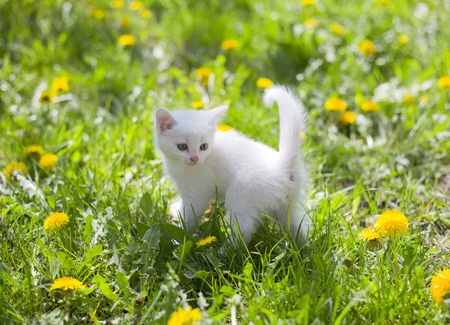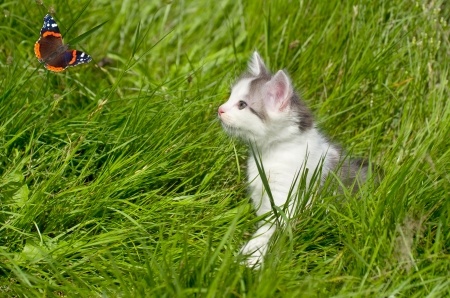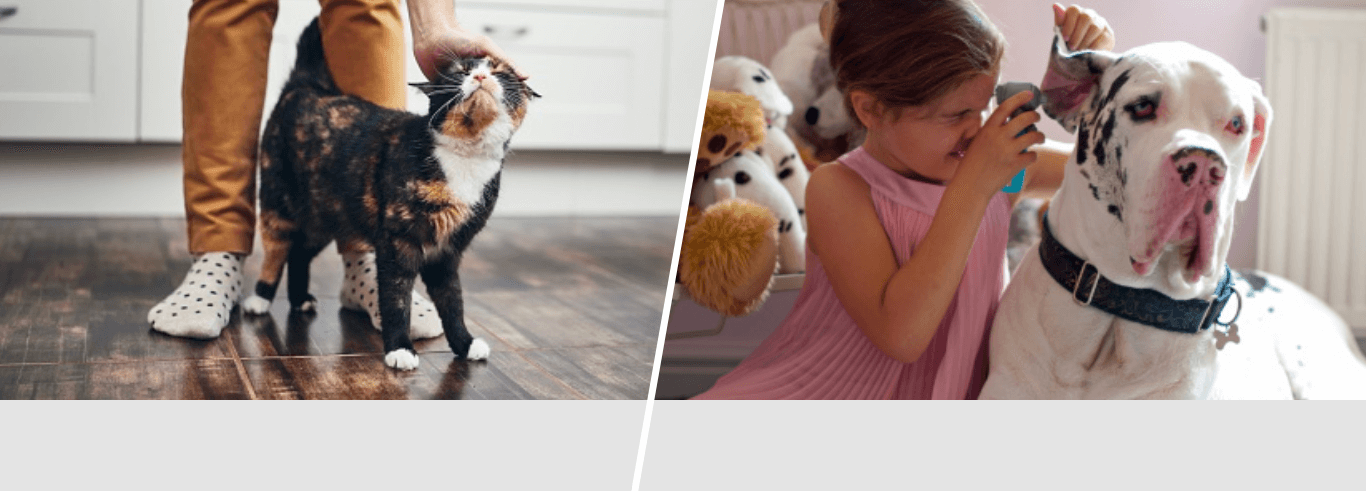Can cats get hay fever?
Itchy eyes, non-stop sneezing and a runny nose; sound familiar? Just like us, cats can get hay fever. Unfortunately, it’s that time of year when hay fever bothers just about everyone and our feline friends are no exception. It’s important to notice when this occurs to ensure your cuddly cat gets the help they need.
If you notice these symptoms all year round, it could be possible your cat has an allergy to something else other than pollen, so it is important to try and get a diagnosis.

When do cats get hay fever?
Hay fever will only affect your cat during certain seasons just like humans, and as a result, is often referred to by vets as a seasonal allergy. These seasons are most often spring and summer.
Your cat’s immune system reacts to pollen as if it were a foreign invader, so you’ll find the hay fever allergy will develop over a number of years and each time your cat breathes in pollen, they will develop an even larger reaction.
Cat hay fever symptoms
Recognising when your cat is developing a reaction to anything, especially hay fever, is important. From cat hay fever eyes, to sneezing and coughing, here are the most common symptoms:
- Sneezing
- Coughing
- Itchy, runny eyes
- Snoring – normally due to an inflamed throat
- Paw chewing or sensitive paws
If you notice these symptoms all year round, it could be possible your cat has an allergy to something else other than pollen, so it is important to try and get a diagnosis.
Does my cat have hay fever?
It can be difficult to get a diagnosis for your cat when they have hay fever, simply because the symptoms are similar to so many other allergies. And since your cat can’t actually tell you what’s going on with their body, it can often be a guessing game trying to figure out what’s causing the allergies.
If in doubt, take your beloved cat to your local vet and let them run an allergy test; this will highlight whether it is in fact pollen they are allergic to, or something else. Sometimes, allergies can be caused by a perfume that has been squirted nearby, cleaning products or even some types of food. It’s vital to find out exactly what’s causing such a reaction so that you can fix the problem and ensure your cat goes back to their normal self.
How to treat hay fever in cats
In a perfect world, allergies to pollen would be easily treated for both us and cats, but it doesn’t quite work like that. Mostly, it is the case of removing whatever it is they are allergic to from their surroundings to help with the hay fever symptoms.
If you’ve found it is pollen your cat is allergic to, the best way to treat it is to simply keep them inside. This can be easier said than done, but it’s really important. Vacuuming and dusting on a regular basis will help to reduce the sniffles while they are inside and be sure to clean and dust their bed and toys. However, if your feline friend still loves to head outside, try to limit their outdoor time and make sure to clean their surroundings as often as possible. Brushing your cat’s fur frequently can also remove pollen and help reduce symptoms.
Your vet may also be able to prescribe some antihistamines if your cat’s allergies are exceptionally bad. This can prove to be really beneficial and reduce their reaction to pollen over the long term.
Now you’ve got the answer to the question you’ve been asking yourself, make sure you remember to keep yourself protected from unexpected vet bills with Argos Pet Insurance provided by Pinnacle Insurance Ltd. Explore our cat insurance policies today.
 Sorry, our lines are now closed
Sorry, our lines are now closed




